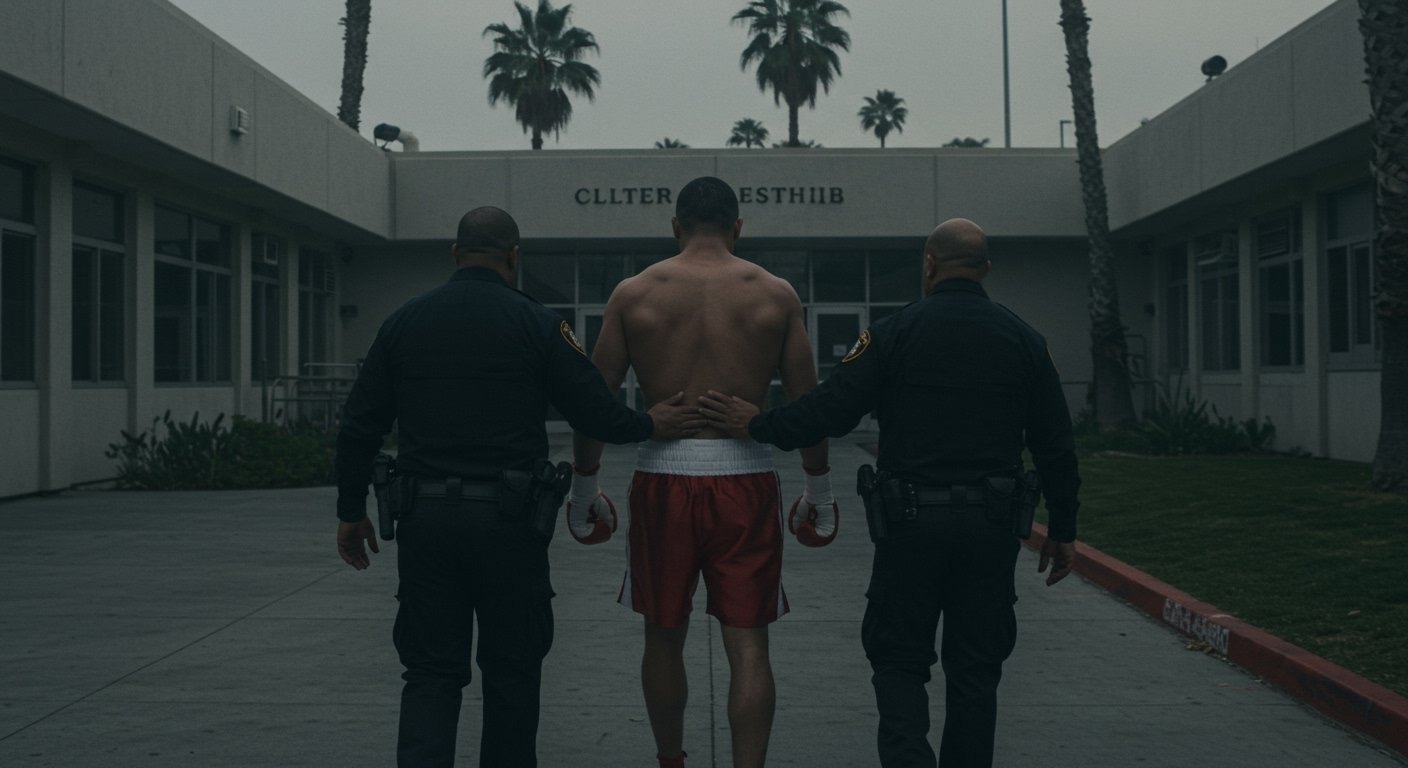LOS ANGELES, CA – Prominent Mexican boxer Julio César Chávez Jr. has been taken into custody by federal immigration agents in Southern California and is currently being processed for expedited removal from the United States. The detention, carried out by officers from Immigration and Customs Enforcement (ICE), occurred in Studio City, Los Angeles, on Wednesday, July 2, 2025.
The arrest has cast a spotlight on the complex intersection of international legal issues, immigration policy, and the personal circumstances of a well-known public figure, occurring just days after Chávez Jr.’s participation in a high-profile boxing match.
Details of the Arrest and Visa Status
According to information released by the Department of Homeland Security (DHS), Chávez Jr. initially entered the United States legally in August 2023. His entry was facilitated by a B2 tourist visa. However, officials stated that this visa expired in February 2024, rendering his continued presence in the country unauthorized under immigration law.
Federal agents executed the arrest on the morning of July 2, 2025, as part of standard immigration enforcement procedures targeting individuals present in the U.S. without valid authorization. The subsequent processing for expedited removal indicates an administrative process designed to swiftly deport certain non-citizens who are found to be inadmissible or deportable under immigration statutes, often without referral to a full immigration court hearing, depending on the specifics of their case and history.
Warrant and Allegations in Mexico
Adding a significant layer of complexity to his situation, federal officials in the U.S. have also disclosed that Chávez Jr. is the subject of an active arrest warrant originating in Mexico. This warrant is reportedly linked to serious allegations concerning his purported involvement in organized crime and the trafficking of firearms.
The nature of these charges in Mexico adds a potentially grave dimension to any possible deportation proceedings. While the U.S. immigration detention is based on his visa status, the existence of the Mexican warrant could influence future international cooperation or legal outcomes, depending on the specifics of treaties and agreements between the two countries.
Timing Relative to Recent Fight
Chávez Jr.’s arrest occurred only four days after he stepped into the ring for a boxing match against Jake Paul. The bout took place in Anaheim, California, on June 28, 2025. Chávez Jr. ultimately lost the match to Paul.
The proximity of the arrest to this widely publicized event underscores the sudden and unexpected turn in the boxer’s circumstances, transitioning rapidly from a public athletic competition to federal custody.
Legal Representation and Defense
Michael Goldstein, the attorney representing Julio César Chávez Jr., has publicly addressed the allegations originating from Mexico. Goldstein vehemently disputed the claims, characterizing them as “outrageous.”
Goldstein also confirmed that his client was already scheduled to appear in court on the Monday following his arrest in connection with separate, prior charges related to gun possession. This suggests that Chávez Jr. was already facing unrelated legal challenges in the U.S. prior to his immigration detention.
Broader Context of Immigration Enforcement
Chávez Jr.’s detention takes place against a backdrop of increased immigration enforcement activity across the Southern California region. Federal agencies have reportedly intensified efforts to locate and apprehend individuals residing in the U.S. without authorization or those with outstanding warrants.
This broader trend in escalated arrests has not been without controversy and has prompted protests from various groups advocating for immigrant rights. The detention of a figure as prominent as Chávez Jr. may further amplify the public discourse surrounding these enforcement policies.
Path Forward
As of now, Chávez Jr. remains in federal custody while being processed for expedited removal. The legal path forward involves navigating the immigration system, potentially including challenges to the expedited removal process, depending on his legal options.
Simultaneously, the existence of the warrant in Mexico introduces the possibility of extradition requests, although such processes are distinct from immigration removal proceedings and involve complex international legal protocols. The separate, pending gun possession charges in the U.S. represent another independent legal matter Chávez Jr. must address.
The convergence of these different legal and immigration challenges presents a complicated situation for the Mexican boxer. His attorney is expected to vigorously contest both the immigration case and the allegations underlying the Mexican warrant, while also managing the existing domestic charges.





